15 Jan Cuban culture and the blockage, interview with Natacha Santiago
If you carry a map and a smile on the streets of Havana, you can find the most incredible things. On one of the most popular corners ‘L with 23’, I was offered help whilst looking for directions on the map. A well dressed and great English speaking lady and her companion stopped to help me. Within a couple of words, Natacha Santiago introduced herself as cultural producer and promoter, poet, and university teacher. There was enough information there to instigate me to talk to her about questions regarding arts and culture in Cuba and its complicated socialist system.
We gave ourselves a happy hour rendez-vous within a couple of days, at the historical Hotel National, where many worldwide famous artists and personalities have stayed. The 1930’s building, with colonial canons in the gardens and a wonderful sea view were the background for our meeting, accompanied by a strong cup of coffee and ‘rolled in the hotel’ Cuban tobacco.
“Whilst I fly with the clouds, I watch what happens in Earth”
Natacha describes herself, firstly as a dreamer. Inspired by Marti, the great national poet, she’s written poetry since she was a young kid. Natacha is a multi-award winning poet, has published five books, three of them also published in Mexico. Her poems are part of many other publications, specialised books and magazines internationally. She is an active and influent member of the literary scene in Havana, as an organising member of the few international poetry events in Cuba and having participated in those events since their beginnings. Moreover, Natacha works as a scriptwriter for TV and radio. Her education in Pedagogy and Psychology made her a Cuban and American history teacher at the Havana University. Now retired, she still works and dedicates as much as she can to her poetry and her cultural project Nuostro Espaco (Our space), which she founded and has coordinated for over 10 years ago. An independent social initiative taking groups of poets to places like hospitals for AIDS patients, schools for handicapped children or with mental diseases and kids with cancer, the project also collects food, medication, clothes and other things to help to bring inspiration to people who need it.
A: As a history teacher and artist, tell us about the challenges of being an artist in Cuba.
During the revolution I was 13 years old and in 61, the literacy campaign in Cuba, made our country the 1st free Latin American country to be literate. And to continue the cultural education of the Cuban people, one important mark was the creation of the National Publishing and Printing Company of Cuba, that started publishing the biggest pieces of the world literature, making it affordable for all people. This was the base for the motivation of interest for the literature consequently inspiring people to write.
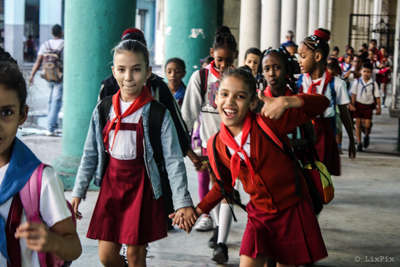
A: Does the government influence or restrict certain subjects to the writers?
Not at all. People are free to come up with any subjects and enter their book to a selection. They are literary analised and the author’s background and career are considered to choose the published ones. It’s important to be involved and to take part in what happens culturally, in my case, book fairs and literature events.
A: What is the relationship of the government with the support and management of the cultural sector in Cuba?
We have the Ministry of Culture that regulates all the subsidiaries that will support the economical access to culture by the Cuban people. For example, to go to the cinema here costs 2 Cuban pesos, the equivalent to US$ 0.10, and I don’t know one other place in the world that you can pay so little to go to the cinema. But in terms of applying for funding to the government, this doesn’t exist here. Our Ministry of Culture barely has money to pay for its own workers. Salaries here are low and a licensed teacher could earn around 560 Cuban pesos (US$ 25) and this is good comparing it to other professions.
We also have the National Union of Cuban Artists and Writers that is non-governmental association, that groups fine and contemporary artists, scenic artists with actors, writers, poets, narrators etc. There are meetings where we can discuss and address our causes and the committee will deal with the government. There is a large competition between the artists’ groups to have more subsides to benefit its art forms.
A: How does the blockade affect the cultural sector?
Let’s take the example that one of our artists received the Grammy Awards in America. Sometimes the artist won’t have enough funds to go and receive the award and sometimes if they receive an American Award that includes a cash prize, the money is not allowed in the country.
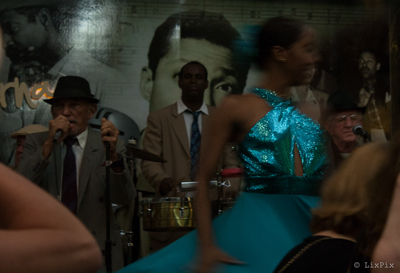
The blockade compromises the international economy of the Cuban culture. I had books published in Mexico and sold in California that I can’t receive the money for it. I know musicians that had their songs being interpreted by Mexican musicians and they can’t receive any money for their copyrights. The tickets for the concerts in Cuba have taxation, but the money is never enough. If a musician doesn’t earn enough, it can’t pay any taxes, so the government doesn’t have enough money to help the culture to become more accessible, creating a vicious circle. In the end, they will need to take money from other sectors to help the culture and this money will compromise other essential things too. And this happens in all sectors. The blockade is being discussed by the United Nations Assembly, and 188 countries that don’t agree with the blockade voted to stop it because it’s compromising other countries that have interests to trade in Cuba. The blockade affects the supply of simple and much needed basic materials such as paper, paint or canvas, equipment and so many other things. Access to internet is difficult, I have some time available for free, in the literature centre we have computers available with limited access and in other places they have an information centre but all are of limited and strict.
A: What needs to change for the cultural sector to develop here?
N: If we remove the blockade, we enter the world of cultural negotiations and we can not only communicate and promote our art and culture as we can sell it and receive the money for it that we deserve.
We need money for the basics first, from food to health, or to support a national catastrophe such as the Sandy hurricane damages. So culture sometimes, needs to wait.
A: The cultural tourism can be a strong money-maker for Cuba, as the authenticity and variety are excellent, the quality of the cultural experience can improve if the money is invested. Cuba will also need new policies and strategies to manage this commerce, making sure that the sector can earn so it continues to be subsided for the Cuban people, as well as the artists and the cultural production continues vibrant. Do you think that there are points that the blockade can benefit the Cuban culture? Could the opening up damage the uniqueness of the Cuban arts?
N: No, absolutely not. When I was born, Cuban was capitalist. There were so many international artists here and this brought a great understanding and knowledge of our original talents. It also exposed Cuban culture to the world, our artists could travel and bring it out there. Cubans love Cuba, we love our roots, our people enjoy and is inspired by it. The blockage wouldn’t take this away, in fact, I think our cultural identity would become even stronger. Take as an example, Puerto Rico, they managed to become part of the US, fought to keep their language and now they export culture. Having a cultural exchange can only enrich our arts and culture. There were times when American kids came to do exchange here. When they arrived and saw the reality of Cuba, with all kids studying, healthy and happy, the place was clean and beautiful, they changed their prejudice caused by the lack information and poor cultural education. Honestly I think that they are somehow blocked too for the world’s reality and once they are better informed, we can hopefully move on together.
Natacha is also dedicating her time once a month in the Imperial tribune to campaign for the freedom of the 5 Cuban illegal prisoners in U.S. for the last 14 years, who are also artists, poets, painters, narrators. She is close to their families and takes her next mission with passion.




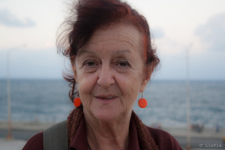
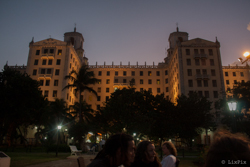
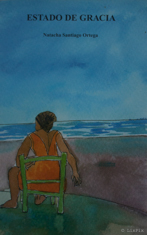
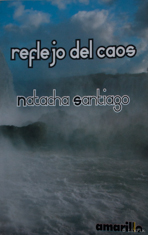
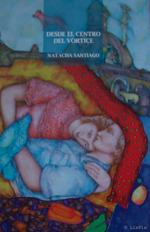
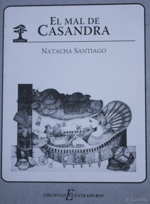
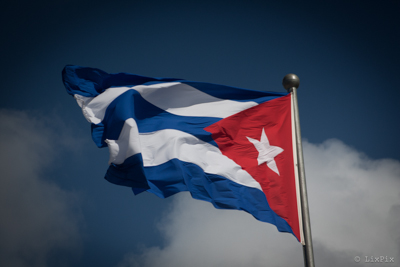
No Comments